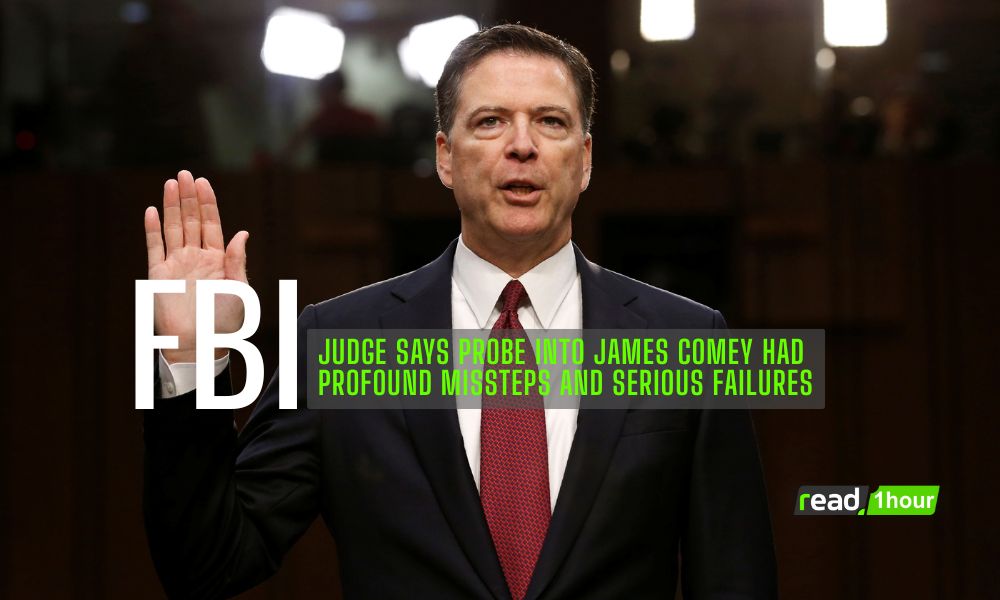Judge Says Probe Into James Comey Had Profound Missteps And Serious Failures
Judge rules Comey probe suffered profound missteps, raising questions about political influence, FBI integrity, and investigative accountability.
A federal judge has sharply criticized the investigation into former FBI Director James Comey, ruling that the probe was riddled with “profound missteps” and lacked the procedural rigor expected in a high-profile federal inquiry. The ruling has reignited debates over political influence, FBI accountability, and how top officials are scrutinized during moments of national controversy.

The investigation, launched several years after Comey’s dismissal, examined whether he mishandled confidential information and violated internal protocols. While previous internal reviews found Comey had acted outside standard procedures in some instances, prosecutors declined to bring charges. Now, Judge Marianne Holder’s assessment adds a new layer of scrutiny—not on Comey, but on the investigators themselves.
In her written opinion, Judge Holder stated that several steps taken during the inquiry “fell below the professional and legal standards required in federal investigations.” She highlighted failures to properly document interviews, inconsistencies in evidence handling, and what she described as “noticeable political pressures surrounding the process.”
Her remarks echoed long-standing concerns from both legal experts and former intelligence officials who argued that the investigation into Comey had been influenced by political tensions at the time. Comey, who became a polarizing figure after his decisions during the 2016 presidential election, has repeatedly said the investigations were attempts to discredit him.
The ruling does not exonerate Comey of criticism regarding his leadership decisions, but it significantly challenges the integrity of the investigative process used against him. “Government investigations must exemplify fairness and precision,” Judge Holder wrote. “In this case, several procedural safeguards were compromised.”
Comey responded publicly through a brief statement, saying he was “grateful the court recognized the flaws” in the probe and reiterating that he had always acted with what he believed to be the best interests of the country.
Political reactions quickly followed. Supporters of Comey pointed to the judge’s findings as proof that the inquiry had been politically motivated. Critics, however, argued that the ruling does not erase Comey’s controversial actions and that his decisions still warrant concern, especially regarding his handling of sensitive cases.
Legal analysts say the judge’s findings highlight the need for reforms in how politically sensitive investigations are conducted. Keywords like FBI integrity, political influence, federal oversight, and judicial accountability have resurfaced across public discussions, emphasizing broader concerns about trust in federal institutions.
The Department of Justice has not yet announced whether it will launch an internal review in response to the ruling. However, pressure is mounting from lawmakers who believe that the credibility of the FBI—and future high-stakes investigations—depends on clear, trustworthy procedures free from external influence.
As Washington reacts to the judge’s decision, the ruling serves as a reminder of how deeply intertwined politics and law enforcement have become in recent years. And for Comey, it marks yet another chapter in a long-running national debate over fairness, accountability, and the proper limits of federal investigative power.
